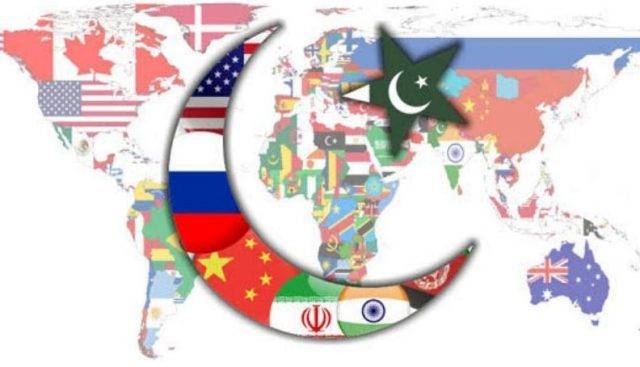
Security and Foreign Policy, though interlinked, have been two of the most challenging aspects of governance & representation in Pakistan. It is closely linked with ensuring prestige of a country for its contributive role by evolving an apparatus for its well-being, prosperity & progress. This platform, in its paradigm, reflects the success of all contributing factors i.e. socio-economic, legal, political, infrastructural & digital aspects of good governance. Hence, all political parties attach importance to Foreign affairs as it simultaneously determines their policy decisions to improve the country's image in regional & international arenas.
PPP bases its argument on its history
PPP deals with security & foreign policy in its last section, titled 'Reclaiming our rightful place in the world.' PPP's advantage in this sphere of exchange is that it does possess special means in order to adhere to its vision, which establishes Pakistan's rightful place in the world. This endeavor is an inherited legacy from the founder of PPP, Zulfikar Ali Bhutto, who also served as Foreign Minister. Hence, the relative importance of safeguarding Pakistan's interest and improving image is reflected in the manifesto as part of its second generation agenda.
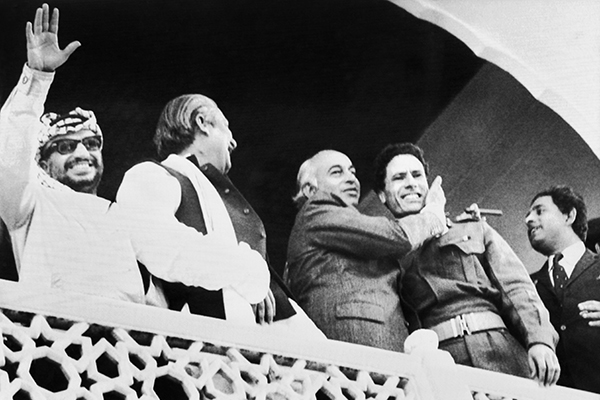
PML-N takes pride in the success of anti-terrorism campaigns
PML-N attributes the success of anti-terrorism campaigns and rooting out militancy as a form of credit to its governance and performance for fulfilling its promise, which has established Pakistan as a beacon of security and fortified its economy as highest priority was attached to dealing with scourges in order to turn around the fragile economy. These efforts led to increase in foreign investment and confidence in Pakistan and we witnessed better opportunities emerging - from which people had been deprived - and, this also led to election of Pakistan into several international bodies due to remarkable success through developing mechanism for multi-dimensional and holistic approach towards increased cooperation and collaboration. CPEC has proved to be a game changer which has led to recognition and acknowledgement of Pakistan's status and contribution on International level.
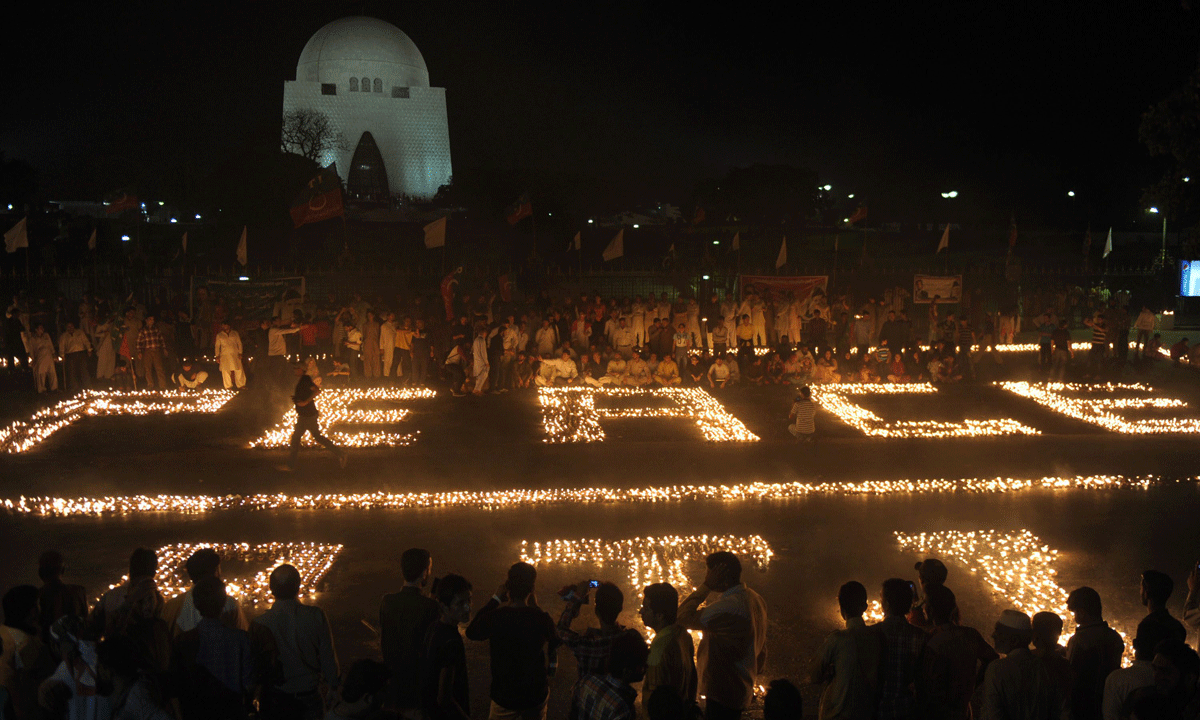
What PPP manifesto offers for the future?
PPP manifesto states that in order to thrive in the global community, it is imperative to launch means which help destroy prejudice and end hostility; since, decline in Pakistan's foreign standing has direct impact on the situation and status of people. PPP's approach is built on three pillars: securing state and defending sovereignty, Pursuing values & interests of people through diplomacy and promoting culture to inculcate confidence and to nurture values. PPP's track record from its first generation symbolizes the stand which ZA Bhutto took to deal with aggression and imbalance in the region, depicts brilliant form of leadership skills. This includes decision to become nuclear as means of deterrence which forms cornerstone of national, regional, security & stability equilibrium. PPP offers fresh mandate on improving international stature as part of its tremendous capability and capacity to provide an insight into functions of strategic affairs as it provides wide & extensive coverage to its credentials & promises in the manifesto.
PTI manifesto focuses primarily on structural reforms
PTI's manifesto does have the element of uniqueness but seems limited. PTI, interestingly, puts forward suggestions for structural reforms in MOFA to keep pace with demands of changing political environment for purpose of successful FO operationalization through institutional prerequisites.
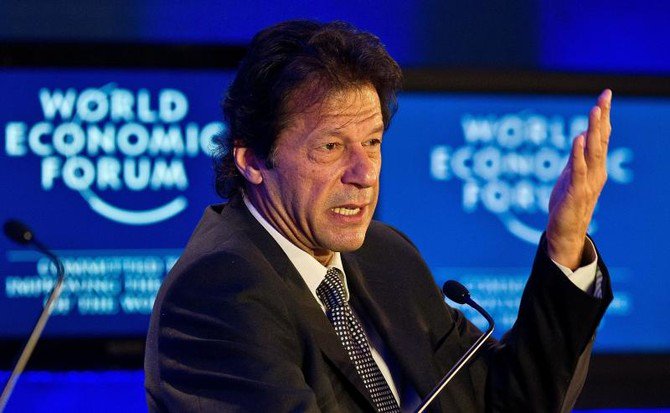
PTI divides its strategy into two dimensions: internal (formation of NSO to overcome NACTA logjam & overcome endless bureaucratic turf wars) and external (more international legal coverage for informed decision-making). Both dimensions respectively deal with policy, strategy and structural reforms. The distinct feature about PTI's policy approach is its outlay on course correction as part of its guiding principle: reciprocity, mutual interests and international norms, which isn't different from the policies of PML-N and PPP. The strategy for counter-terrorism revolves around 4 E's i.e. 'Expose, Enforce, Eliminate & Educate to reclaim ungoverned spaces.'
PML-N considers Economy as top priority while PTI relies on Accountability as main agenda
PPP wants Pakistan to play a significant role in events which involve negotiations of changing world order which reciprocates to its strong point of 'reconciliation & constitutionalism.' The PPP manifesto states that tremendous gains can be garnered if new political inroads and partnerships are established on the basis of geo-strategic flux. Considering each party's strong point to work upon, PML-N considers Economy as top priority and PTI relies on Accountability as main agenda. In this instance, peace has become a necessity and a pivoting factor for its Foreign policy. For example, Pakistan sought China as an ally and granted access to Gwadar in return for investment and security. The basis was laid in PPP's era and PML-N ontinued the practice. Similarly, 2008-13 PPP era witnessed gruesome US-Pakistan relations but PPP's efforts for diplomatic and political engagement paid off as both countries explored new avenues for revival of relationship through strategic, economic and cultural cooperation.
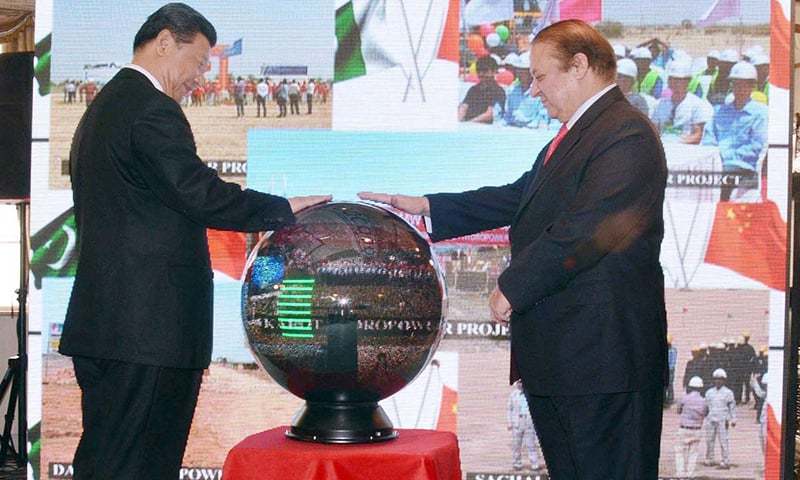
PML-N, PPP have similar approach on India, Afghanistan and Middle East
The baseline review experienced jump-start due to pro-active engagement with democratic forces in media, academia, civil and entrepreneurial sections. This is prime example of enhanced governance which can be also witnessed in PML-N's 2013-18 term as 'energy and trade connectivity' became its focal point of operating and engaging with more foreign partners. To begin with, both parties attached immense importance to relations with India and Afghanistan where peace initiatives and Afghanistan led and owned reconciliation process were pursued. In Middle East, PPP sought balanced relations with Riyadh and Tehran. PML-N has effectively advanced the PPP's policy of non-interference & increased engagement.
Why PPP's manifesto provides better insight?
PPP's 'Capitalizing Diplomacy & Global outreach' program in its manifesto (Page56-7) is prime example of an action plan which serves as a game-changer. PML-N has not only followed the same trajectory but brilliantly catapulted its efforts in terms of practical demonstration of furthering agenda with EurAsia & International institutions. Lastly, the empowerment of Overseas Pakistanis has greatly enhanced under PML-N regime and the promised initiatives reflect success in terms of achievements and priorities under PPP and PML-N as Pakistan developed sustainable policies through secured effective diplomatic messaging by overcoming numerous, complex and intertwined challenges. Can Pakistan avoid isolation? The promises are same but it all depends on progress achieved so far.
PPP bases its argument on its history
PPP deals with security & foreign policy in its last section, titled 'Reclaiming our rightful place in the world.' PPP's advantage in this sphere of exchange is that it does possess special means in order to adhere to its vision, which establishes Pakistan's rightful place in the world. This endeavor is an inherited legacy from the founder of PPP, Zulfikar Ali Bhutto, who also served as Foreign Minister. Hence, the relative importance of safeguarding Pakistan's interest and improving image is reflected in the manifesto as part of its second generation agenda.

PML-N takes pride in the success of anti-terrorism campaigns
PML-N attributes the success of anti-terrorism campaigns and rooting out militancy as a form of credit to its governance and performance for fulfilling its promise, which has established Pakistan as a beacon of security and fortified its economy as highest priority was attached to dealing with scourges in order to turn around the fragile economy. These efforts led to increase in foreign investment and confidence in Pakistan and we witnessed better opportunities emerging - from which people had been deprived - and, this also led to election of Pakistan into several international bodies due to remarkable success through developing mechanism for multi-dimensional and holistic approach towards increased cooperation and collaboration. CPEC has proved to be a game changer which has led to recognition and acknowledgement of Pakistan's status and contribution on International level.

What PPP manifesto offers for the future?
PPP manifesto states that in order to thrive in the global community, it is imperative to launch means which help destroy prejudice and end hostility; since, decline in Pakistan's foreign standing has direct impact on the situation and status of people. PPP's approach is built on three pillars: securing state and defending sovereignty, Pursuing values & interests of people through diplomacy and promoting culture to inculcate confidence and to nurture values. PPP's track record from its first generation symbolizes the stand which ZA Bhutto took to deal with aggression and imbalance in the region, depicts brilliant form of leadership skills. This includes decision to become nuclear as means of deterrence which forms cornerstone of national, regional, security & stability equilibrium. PPP offers fresh mandate on improving international stature as part of its tremendous capability and capacity to provide an insight into functions of strategic affairs as it provides wide & extensive coverage to its credentials & promises in the manifesto.
PTI manifesto focuses primarily on structural reforms
PTI's manifesto does have the element of uniqueness but seems limited. PTI, interestingly, puts forward suggestions for structural reforms in MOFA to keep pace with demands of changing political environment for purpose of successful FO operationalization through institutional prerequisites.

PTI divides its strategy into two dimensions: internal (formation of NSO to overcome NACTA logjam & overcome endless bureaucratic turf wars) and external (more international legal coverage for informed decision-making). Both dimensions respectively deal with policy, strategy and structural reforms. The distinct feature about PTI's policy approach is its outlay on course correction as part of its guiding principle: reciprocity, mutual interests and international norms, which isn't different from the policies of PML-N and PPP. The strategy for counter-terrorism revolves around 4 E's i.e. 'Expose, Enforce, Eliminate & Educate to reclaim ungoverned spaces.'
PML-N considers Economy as top priority while PTI relies on Accountability as main agenda
PPP wants Pakistan to play a significant role in events which involve negotiations of changing world order which reciprocates to its strong point of 'reconciliation & constitutionalism.' The PPP manifesto states that tremendous gains can be garnered if new political inroads and partnerships are established on the basis of geo-strategic flux. Considering each party's strong point to work upon, PML-N considers Economy as top priority and PTI relies on Accountability as main agenda. In this instance, peace has become a necessity and a pivoting factor for its Foreign policy. For example, Pakistan sought China as an ally and granted access to Gwadar in return for investment and security. The basis was laid in PPP's era and PML-N ontinued the practice. Similarly, 2008-13 PPP era witnessed gruesome US-Pakistan relations but PPP's efforts for diplomatic and political engagement paid off as both countries explored new avenues for revival of relationship through strategic, economic and cultural cooperation.

PML-N, PPP have similar approach on India, Afghanistan and Middle East
The baseline review experienced jump-start due to pro-active engagement with democratic forces in media, academia, civil and entrepreneurial sections. This is prime example of enhanced governance which can be also witnessed in PML-N's 2013-18 term as 'energy and trade connectivity' became its focal point of operating and engaging with more foreign partners. To begin with, both parties attached immense importance to relations with India and Afghanistan where peace initiatives and Afghanistan led and owned reconciliation process were pursued. In Middle East, PPP sought balanced relations with Riyadh and Tehran. PML-N has effectively advanced the PPP's policy of non-interference & increased engagement.
Why PPP's manifesto provides better insight?
PPP's 'Capitalizing Diplomacy & Global outreach' program in its manifesto (Page56-7) is prime example of an action plan which serves as a game-changer. PML-N has not only followed the same trajectory but brilliantly catapulted its efforts in terms of practical demonstration of furthering agenda with EurAsia & International institutions. Lastly, the empowerment of Overseas Pakistanis has greatly enhanced under PML-N regime and the promised initiatives reflect success in terms of achievements and priorities under PPP and PML-N as Pakistan developed sustainable policies through secured effective diplomatic messaging by overcoming numerous, complex and intertwined challenges. Can Pakistan avoid isolation? The promises are same but it all depends on progress achieved so far.
